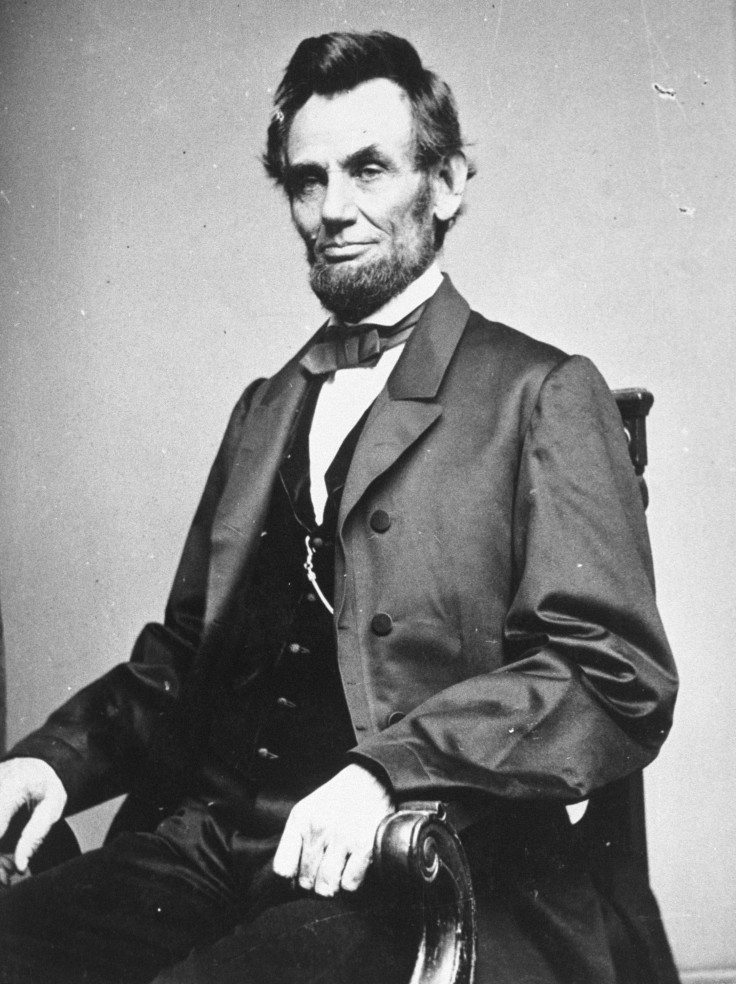National Freedom Day 2018: Quotes Commemorating The Signing Of Amendment Ending Slavery

Feb. 1 is celebrated as National Freedom Day to commemorate the day on which former President Abraham Lincoln in 1865 approved a joint resolution of Congress that would lead to the 13th Amendment to the U.S. Constitution, which eventually ended slavery.
There’s a little backstory to this. President Lincoln signed the joint congressional resolution on Feb. 1, 1865, proposing the 13th Amendment but the number of states needed to ratify the amendment was reached only on Dec. 6, 1865.
Lincoln did not live to see the 13th Amendment ratified, but there was a movement to see Feb. 1 commemorated in perpetuity. National Freedom Day was the idea of former Georgia slave Richard Wright, who lobbied Congress to designate Feb. 1 as the day.
Though it is not a public or federal holiday, National Freedom Day is an occasion to celebrate freedom for all Americans. It holds great significance for millions of people who are descendants of American slaves and though there are no big celebrations planned, there is typically a wreath-laying ceremony at the Liberty Bell in Philadelphia, the former capital of the United States.
Here is a list of some noteworthy quotes by Lincoln to mark the beginning of the end of slavery:
“On the question of liberty, as a principle, we are not what we have been. When we were the political slaves of King George, and wanted to be free, we called the maxim that 'all men are created equal' a self-evident truth; but now when we have grown fat, and have lost all dread of being slaves ourselves, we have become so greedy to be masters that we call the same maxim ‘a self-evident lie.’”
- Letter to George Robertson, Aug. 15, 1855
"I have here stated my purpose according to my view of official duty, and I intend no modification of my oft-expressed personal wish that all men everywhere could be free."
- Letter to Horace Greeley, Aug. 22, 1862
“Four score and seven years ago our fathers brought forth on this continent, a new nation, conceived in Liberty, and dedicated to the proposition that all men are created equal.”
- Gettysburg Address, Nov. 19, 1863
“And by virtue of the power, and for the purpose aforesaid, I do order and declare that all persons held as slaves within said designated States, and parts of States, are, and henceforward shall be free; and that the Executive government of the United States, including the military and naval authorities thereof, will recognize and maintain the freedom of said persons.”
- Emancipation Proclamation, Jan. 1, 1863
“And upon this act, sincerely believed to be an act of justice, warranted by the Constitution, upon military necessity, I invoke the considerate judgment of mankind and the gracious favor of Almighty God.”
- Emancipation Proclamation, Jan. 1, 1863
“I have very earnestly urged the slave-states to adopt emancipation; and it ought to be, and is an object with me not to overthrow, or thwart what any of them may in good faith do, to that end.”
- Letter to John M. Schofield, June 23, 1863
“You dislike the emancipation proclamation; and, perhaps, would have it retracted. You say it is unconstitutional — I think differently.”
- Letter to James Conkling, Aug. 26, 1863
"Every advocate of slavery naturally desires to see blasted, and crushed, the liberty promised the black man by the new constitution."
- Letter to Stephen A. Hurlbut, Nov. 14, 1864
"The world has never had a good definition of the word liberty, and the American people, just now, are much in want of one. We all declare for liberty, but in using the same word we do not all mean the same thing."
- Address at Baltimore, April 18, 1864
"We have, as all will agree, a free Government, where every man has a right to be equal with every other man. In this great struggle, this form of Government and every form of human right is endangered if our enemies succeed."
- Speech to the One Hundred Sixty-fourth Ohio Regiment, Aug. 22, 1864
© Copyright IBTimes 2025. All rights reserved.






















